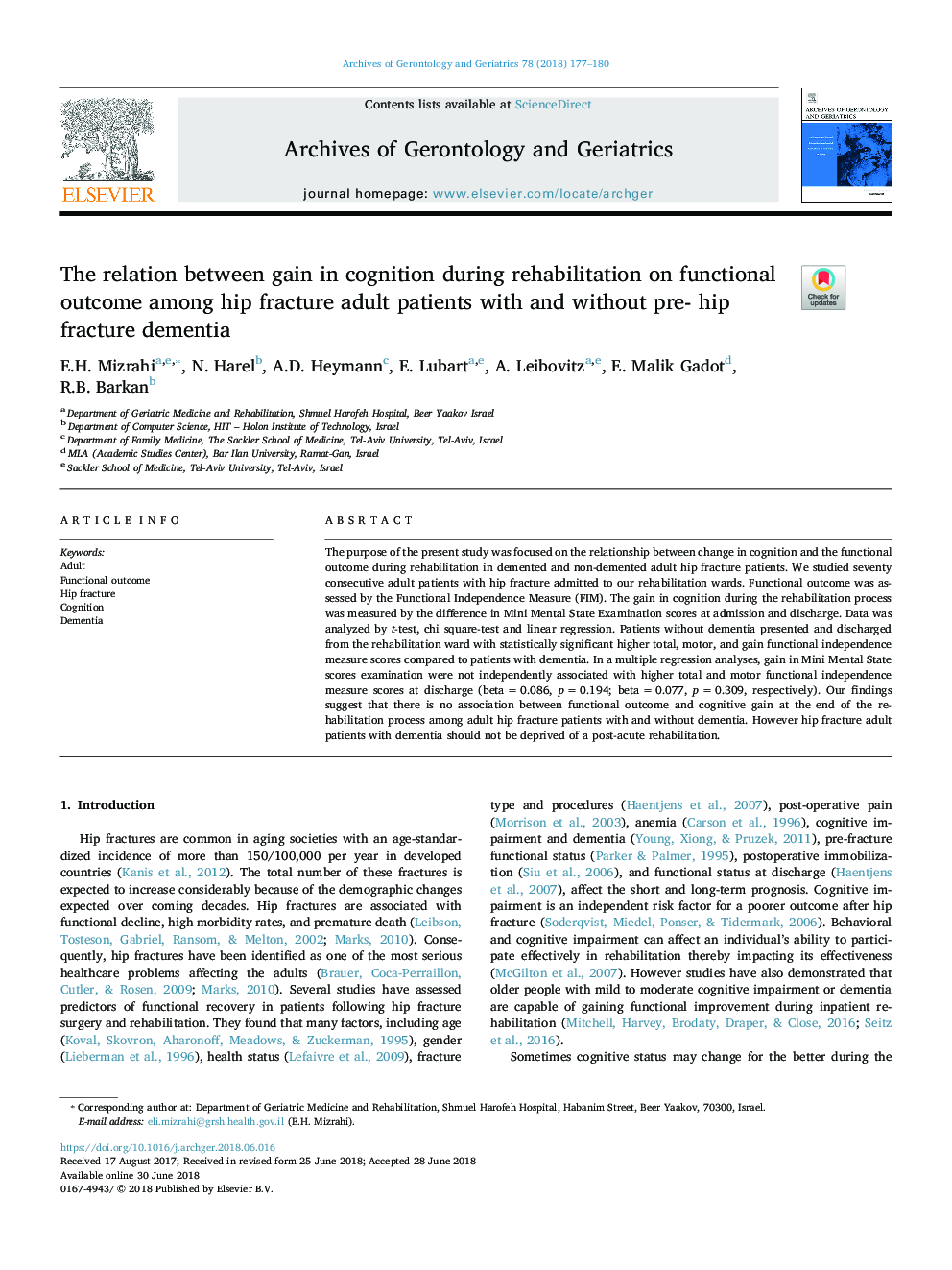| Article ID | Journal | Published Year | Pages | File Type |
|---|---|---|---|---|
| 8257397 | Archives of Gerontology and Geriatrics | 2018 | 4 Pages |
Abstract
The purpose of the present study was focused on the relationship between change in cognition and the functional outcome during rehabilitation in demented and non-demented adult hip fracture patients. We studied seventy consecutive adult patients with hip fracture admitted to our rehabilitation wards. Functional outcome was assessed by the Functional Independence Measure (FIM). The gain in cognition during the rehabilitation process was measured by the difference in Mini Mental State Examination scores at admission and discharge. Data was analyzed by t-test, chi square-test and linear regression. Patients without dementia presented and discharged from the rehabilitation ward with statistically significant higher total, motor, and gain functional independence measure scores compared to patients with dementia. In a multiple regression analyses, gain in Mini Mental State scores examination were not independently associated with higher total and motor functional independence measure scores at discharge (betaâ¯=â¯0.086, pâ¯=â¯0.194; betaâ¯=â¯0.077, pâ¯=â¯0.309, respectively). Our findings suggest that there is no association between functional outcome and cognitive gain at the end of the rehabilitation process among adult hip fracture patients with and without dementia. However hip fracture adult patients with dementia should not be deprived of a post-acute rehabilitation.
Related Topics
Life Sciences
Biochemistry, Genetics and Molecular Biology
Ageing
Authors
E.H. Mizrahi, N. Harel, A.D. Heymann, E. Lubart, A. Leibovitz, E. Malik Gadot, R.B. Barkan,
